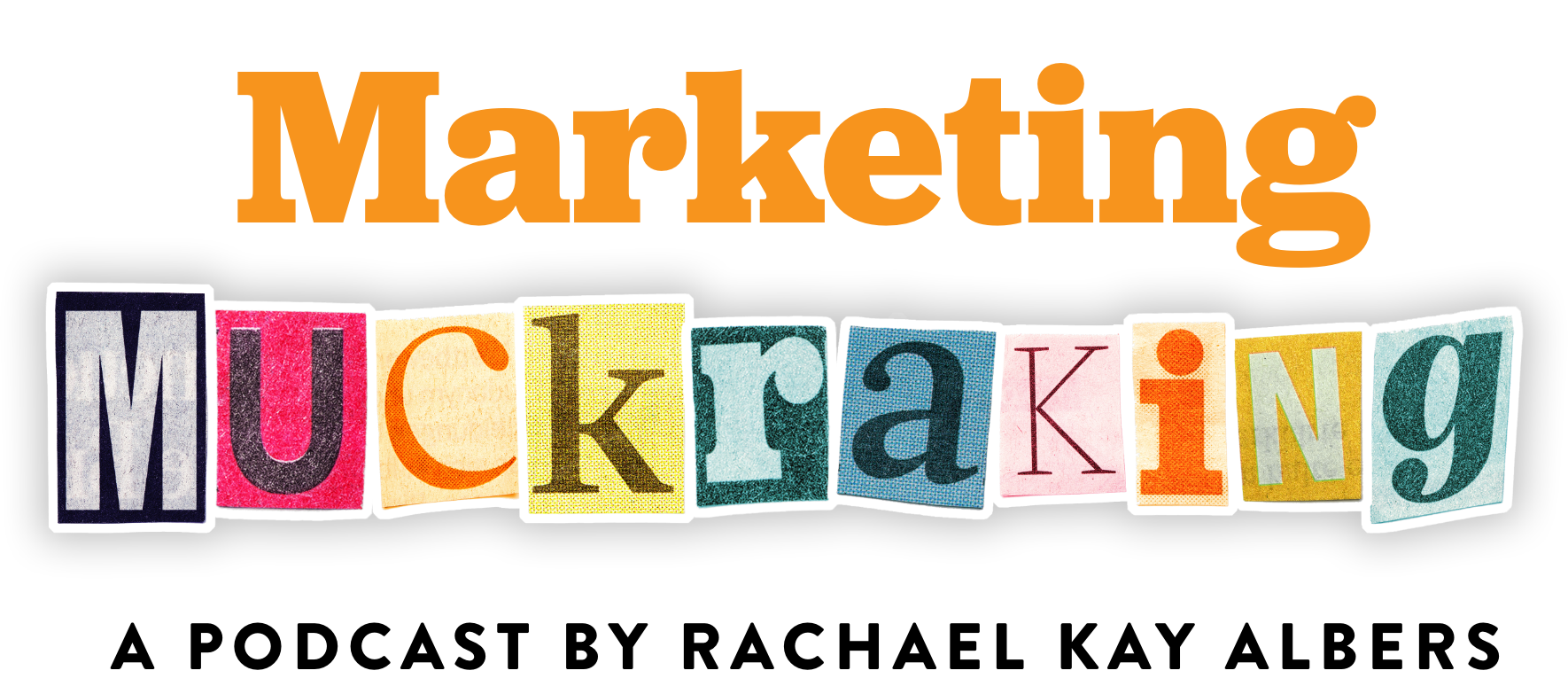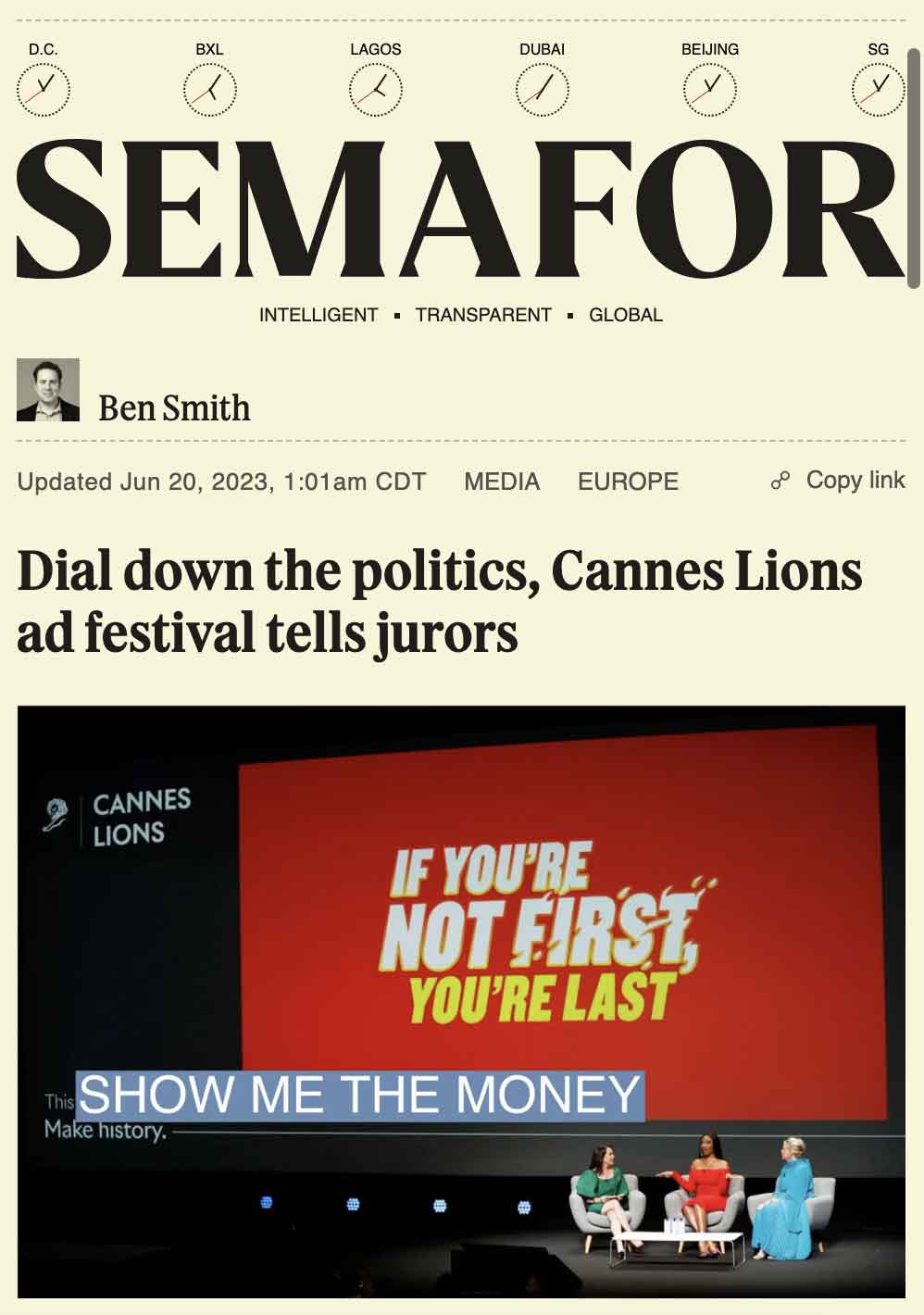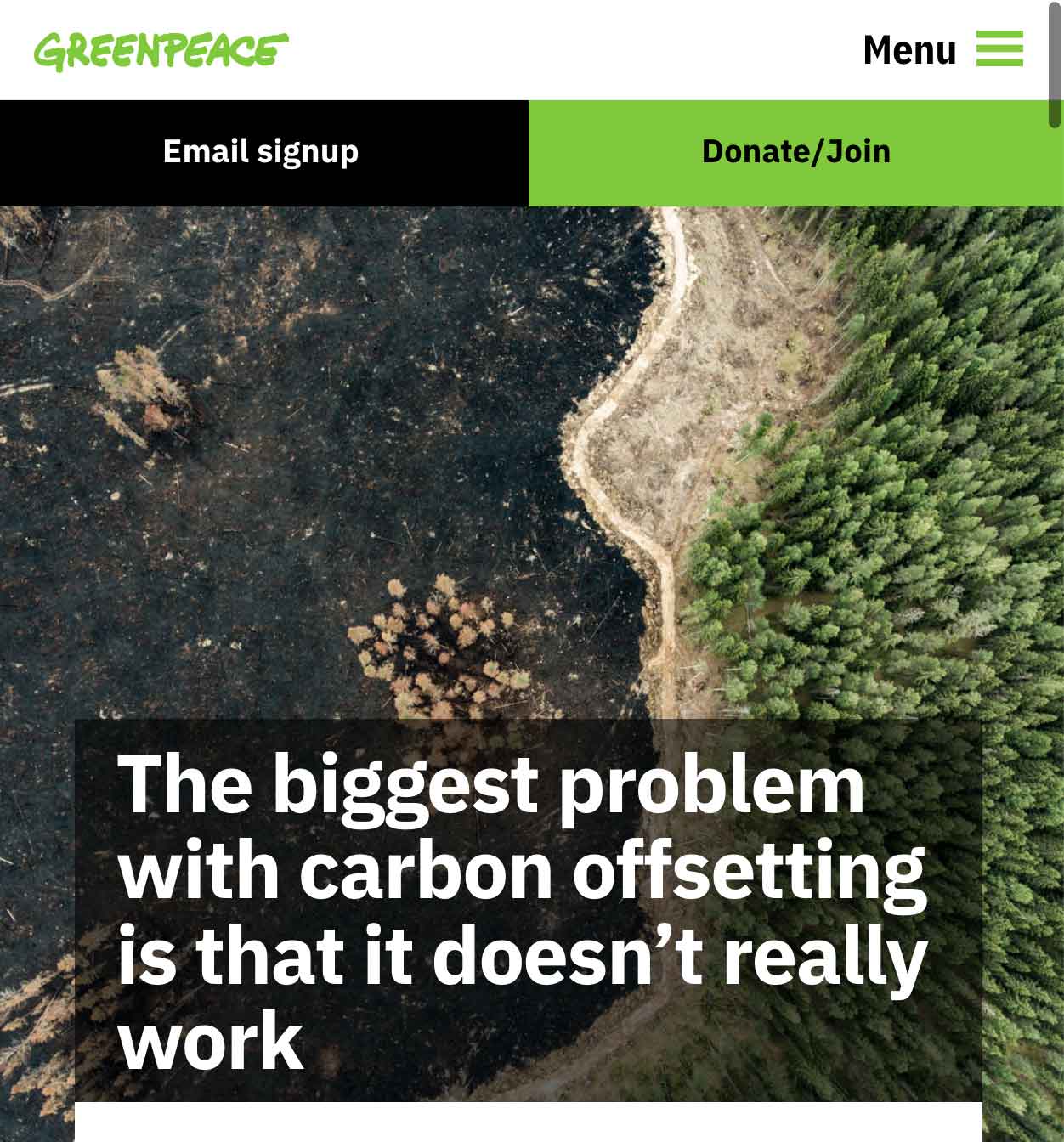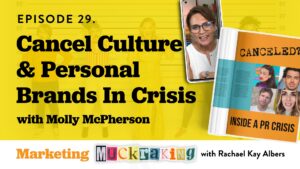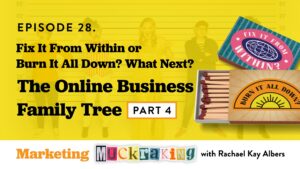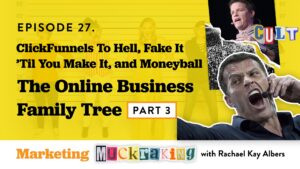Content warning: This episode contains references to homophobic and transphobic language.
I also want to note that in this episode, I reference the term “woke” in the context of right wing pundits appropriating this word to push their “go woke, go broke” political agenda. It’s important to note that the term “woke” originated in African American Vernacular English (AAVE) going back to the 1930s, and in the last 10 years — after it was re-popularized by the Black Lives Matter movement — has gained widespread usage by white people because, well, we like to colonize stuff.
In this installment of Marketing Muckraking, I explore the question:
Should brands be "political"?
And what does it mean to be "political" in the context of global capitalism?
Are we turning to corporations because we've lost our faith in government?
What do we do, as brand consumers and business owners, with the answers to these questions? How do we build a better world?
Mentioned in this episode:
- Target's long history of rainbow washing
- Bud Light, your silence is violence
- Here's why we need brands to be political
See below for the full text of the episode.
In June, the world’s most powerful advertisers gathered at Cannes Lions, where this year’s biggest themes included AI, ad tech, influencer marketing, and most notably — “dialing down the politics,” which was the directive to jurors voting on the advertising industry’s top awards.
While the Cannes leadership never made a statement on the issue, it’s hard not to see these jury instructions as a direct response to recent right-wing-fueled culture wars, specifically as it relates to “woke” M&M’s spokescandies, Bud Light’s short-lived influencer deal with Dylan Mulvaney, and the backlash in response to Target’s 2023 Pride line.
But even without making a statement, the message from Cannes Lions leadership was loud and clear:
“Shut up and sell.”
And they really brought that home when they awarded their “Marketer of the Year” award to — Anheuser Busch’s Chief Marketing Officer.
Yes, that’s right, after exploiting Dylan Mulvaney to gain market share, then dropping her into a sea of death threats and right wing violence when their sales suffered, Anheuser Busch won the top marketing award in the world for the second year, making history as the only brand to ever win this award twice in a row.
Dylan Mulvaney confirmed in late June that Bud Light never reached out to her after the backlash, which further confirms their stance towards the LGBTQIA+ community:
“We won’t stand with you, but we will sell to you.”
Award-winning marketing here, folks.
In the wake of what some call “woke washing,” also known as “rainbow capitalism”, “pink washing”, or “green washing” — all terms synonymous with corporations positioning themselves as friendly to progressives, social and environmental causes, and historically excluded groups to gain market share — the growing efforts by right wing extremists to make examples of brands with messages they don’t like, have opened up conversations around whether brands should “stay out of politics” and stick to selling.
This is my bat signal.
We need a muckraker on the scene because if we leave it up to advertising apologists, well — they’re gonna keep giving awards to hypocrites who care more about profits than people or the planet. And if we leave it up to whichever talking head is auditioning to replace Tucker Carlson, they’re gonna keep inciting hate to promote their Make America Gilead Again agenda.
So, the question we’re muckraking about today is:
“Should brands be political?”
But before we can answer this (or not answer this, because you know my style) we gotta clarify — what does it mean for brands to be “political”? How do we define politics in this context?
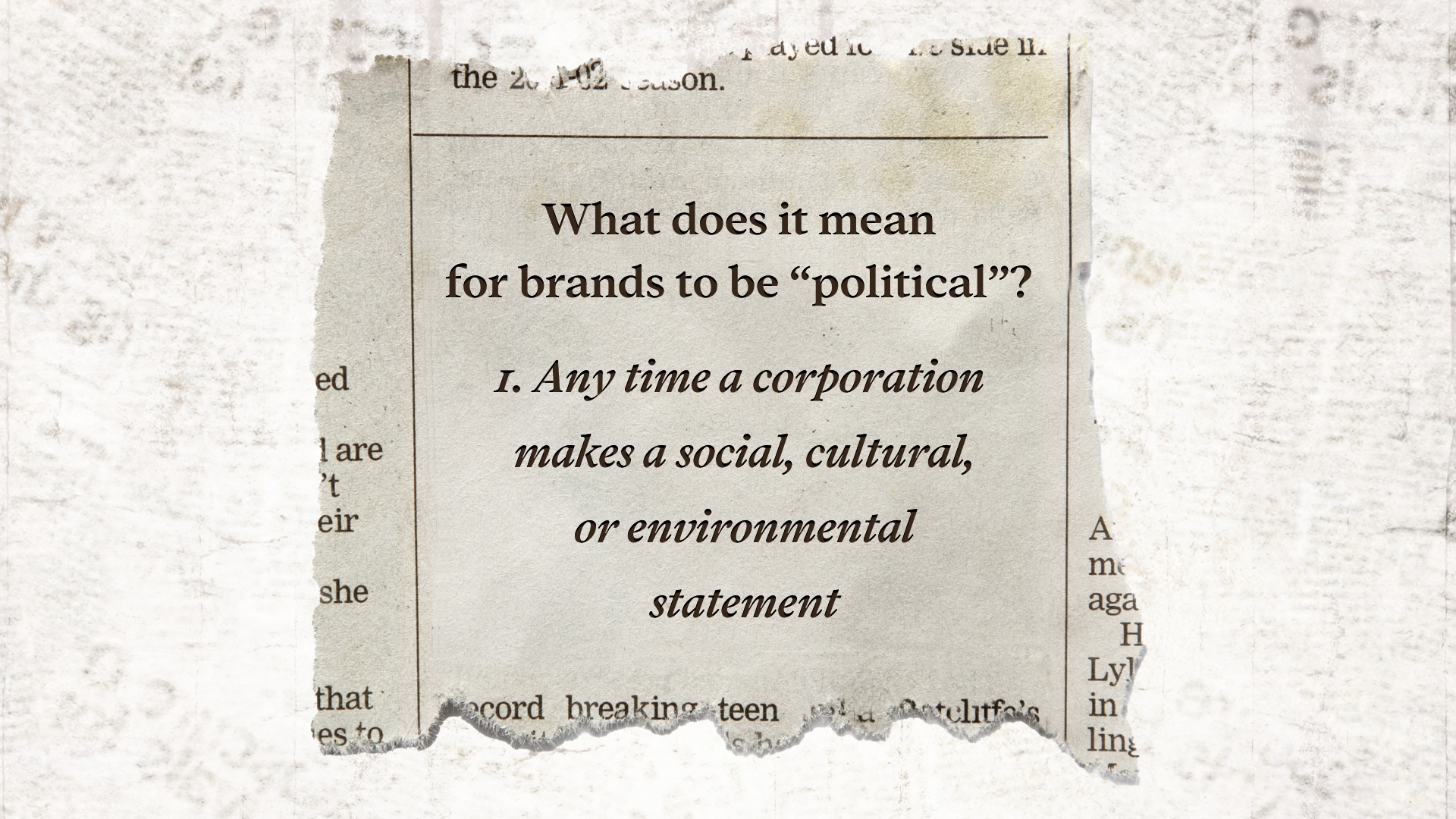
If you’re asking Tucker Carlson or Joe Rogan’s army of Andrew Tate loving incels, “political” is defined as making a statement or taking a stand on any social or cultural issue that they want to weaponize to spread fear and gain votes. “Limited government, except when it’s something WE don’t like, am I right?!” No, you’re not. And you never will be.
Funny how the same people saying that companies should “stay out of politics” have no problem when corporations market a patriotic message. Even one that cheapens and mocks the very values they supposedly deem as sacred. I’m publishing this episode right before the Fourth of July, where the latest and greatest hits include “You can’t spell sausage without USA” from Johnsonville Brats or “the right to bear cheeseburgers” from Sonic, whose ad says the founding fathers fought for our freedom to gobble down ground beef.
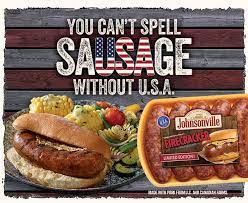
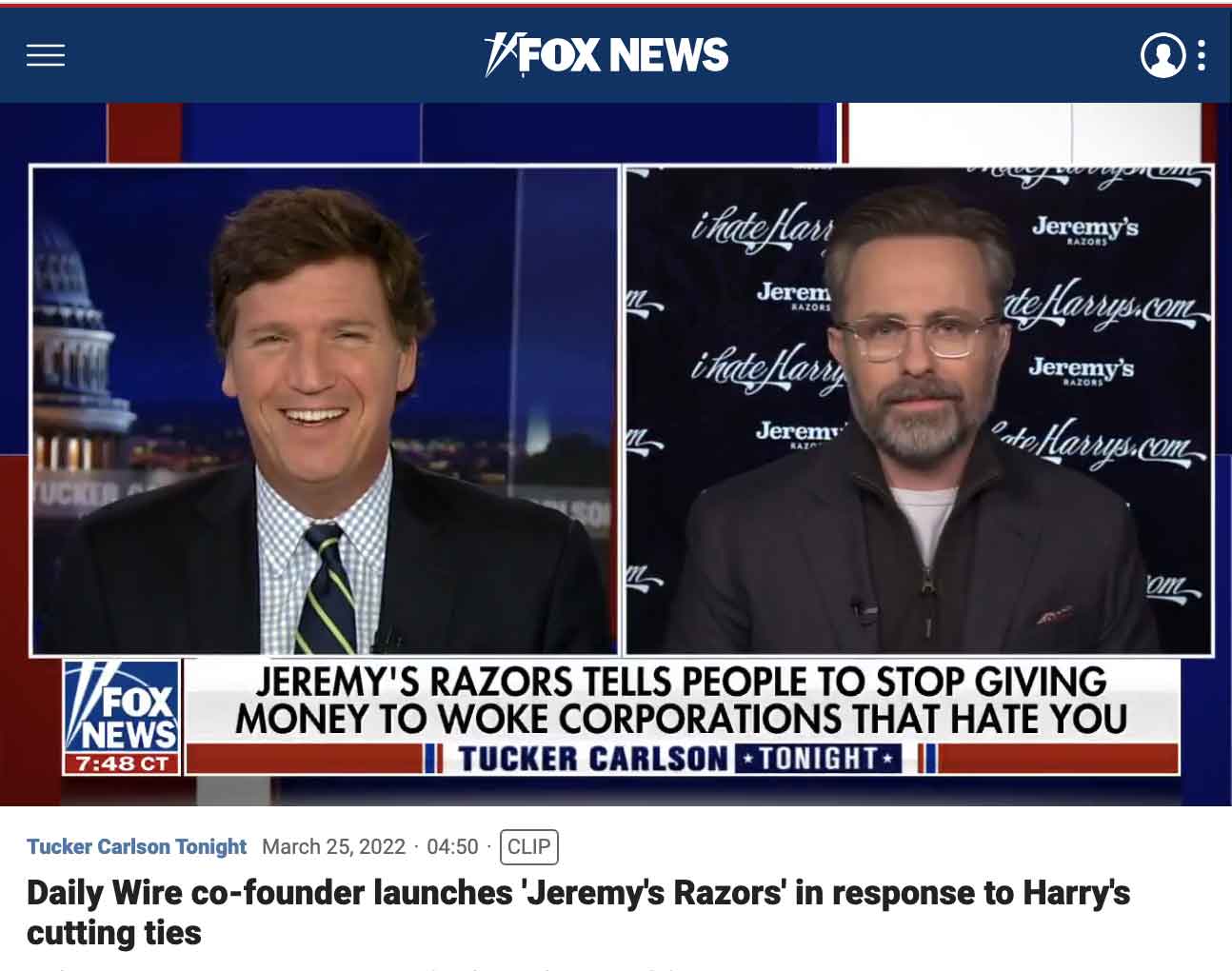
Not to mention how Tucker Carlson and Fox News applauded the launch of Jeremy’s Razors by the CEO of The Daily Wire specifically for being an activist brand championing a social message they liked. This is probably not on your radar — and that’s a compliment — so let me catch you up. The Jeremy’s Razors brand, complete with tagline “Shut up and shave,” launched in 2022 in response to Harry’s Razors dropping its ads at The Daily Wire because of homophobic and transphobic comments made on the streaming service. (By the way, the reviews are awful.)
Here are some sound bytes from a Jeremy’s Razors ad that inexplicably passes the Fox News “stay out of politics” test:
- “Do you remember when there were two genders? And only one and a half of them had to shave their mustaches?”
- “Then they decided that men are toxic, unless you’re the kind of man who teaches his daughter to shave her beard. If that makes sense to you, keep buying Gilette.”
- “Our country’s in trouble. Conservatives are being cancelled by Hollywood, the media, universities, and now Harry’s Razors. Stop giving your money to woke corporations who don’t think you deserve their product. Give it to me instead.”
So, lemme get this right: when Fox News pundits say companies should “stay out of politics,” what they mean is — stay out of politics that threaten our agenda. Everyone else is cool. Especially the My Pillow guy.
But to go back to our question — what does it mean for brands to be “political”? How do we define politics in this context?
1. A brand gets "political" when making any sort of social, cultural, or environmental commentary, period.
But, as we can see, the loudest of the “go woke, go broke” crowd have a very specific bias. They’re actually cool with brands getting “political” in this context, as long as it’s the politics of hate, bigotry, or just leveraging the founding fathers to sell cheeseburgers.
What the Fox News fuckwits — sorry, pundits — also conveniently leave out of their Make America Great Again revisionist history, is the fact that American brands have always been political in this way.
In fact, during WWI and WWII the government mandated that advertisers share very specific political messages, to ensure the American people supported the war effort. During WWI, the Committee on Public Information gave advertisers specific instructions for what they could and couldn’t say, so that every American opened their newspaper each day to an identical patriotic, upbeat wartime message.
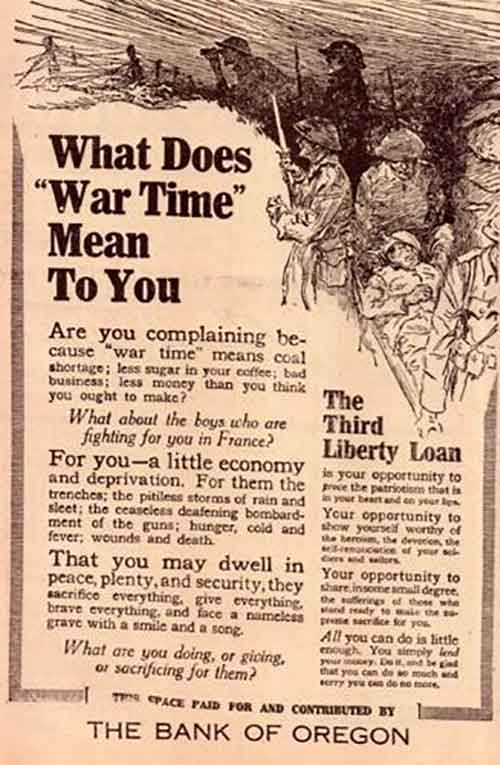
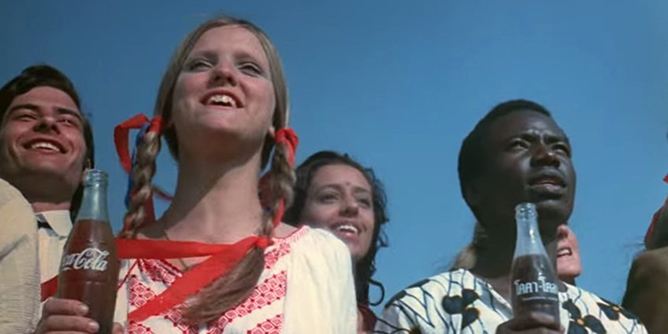
And, as TV and ultimately Internet technology evolved to make way for segmented programming targeted to different audiences and demographics instead of one mass market, advertisers have historically been the first to hop on the bandwagon of shifting culture, to compete with one another for market share.
What the right wing often signals as a very recent shift in “woke” marketing, is not recent at all. Brands have been surfing the waves of “wokeness” before that term existed, some to position themselves as the change the world needs, others to represent a return to a bygone time that never existed.
In both cases, this culture surfing almost always was and is performative.
Corporations advertise themselves as the change, when they’re not changing a thing. Or they promise they’ll take us back to the good ol’ days, when they’re really just pushing their own profits forward.
Either way, the message is the same — why be the change, when you can buy the change? In this sense, there’s not much difference between a corporation and your average politician — both advertise big promises to land our votes and our dollars, both sell us out to keep their pockets fat and their power intact.
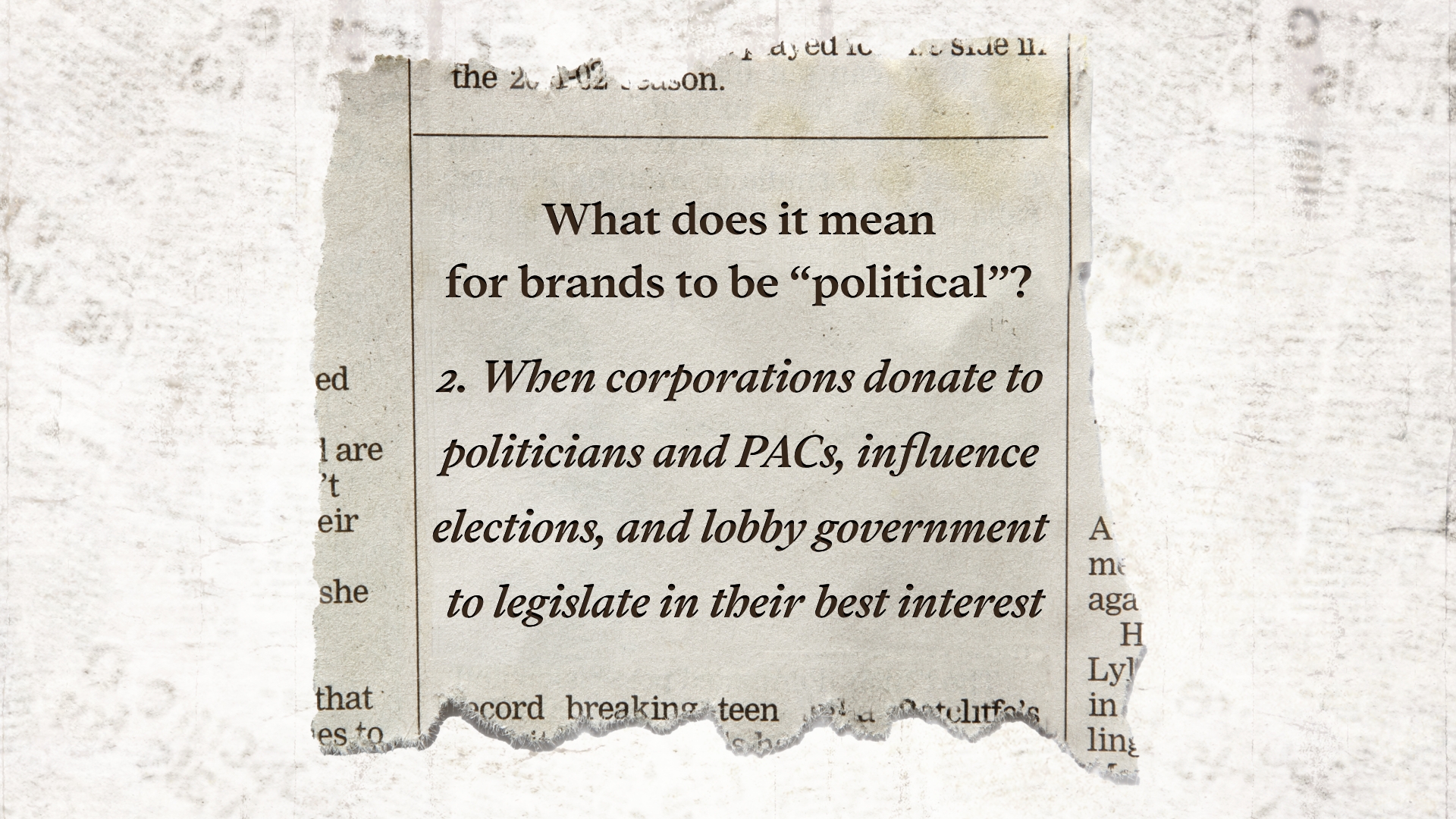
2. A brand gets "political" when donating to politicians or political action committees, influencing elections, and lobbying government to legislate in its best interest.
This is the political brandstanding that most people on both sides of the aisle — and the ones protesting outside the brand theater — overtly disagree with.
But let’s be real, the majority of corporate brands are “political” according to both definitions:
- They advertise themselves as aligning with the change the world needs while;
- Funding and lobbying politicians who oppose that very change;
Bud Light, who has performatively (and profitably) run Pride campaigns for years, didn’t simply partner with Dylan Mulvaney to grab up more LGBTQ+ market share and then drop her when sales dropped. In the past year alone, their parent company Anheuser Busch has spent millions backing conservative politicians, most of which are pushing anti-gay legislation. (And if you’re thinking “Anheuser Busch supports Democrats, too!” the actual breakdown of their political spending is 62% in favor of right wing candidates vs. 37% to progressives.)
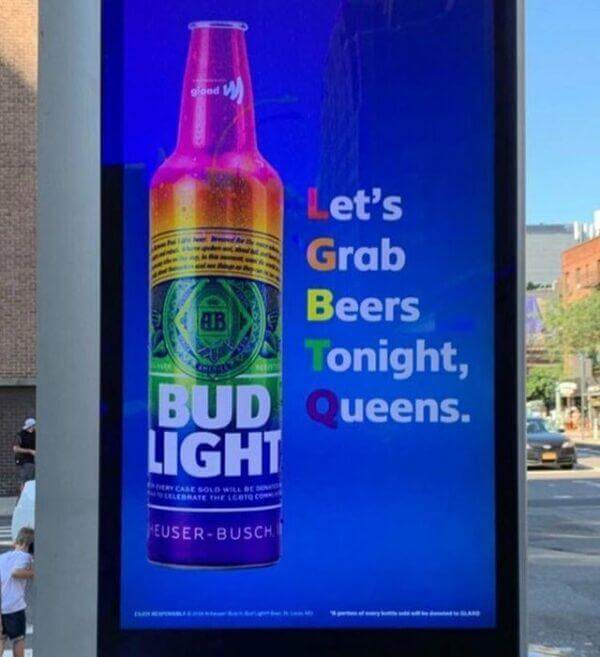
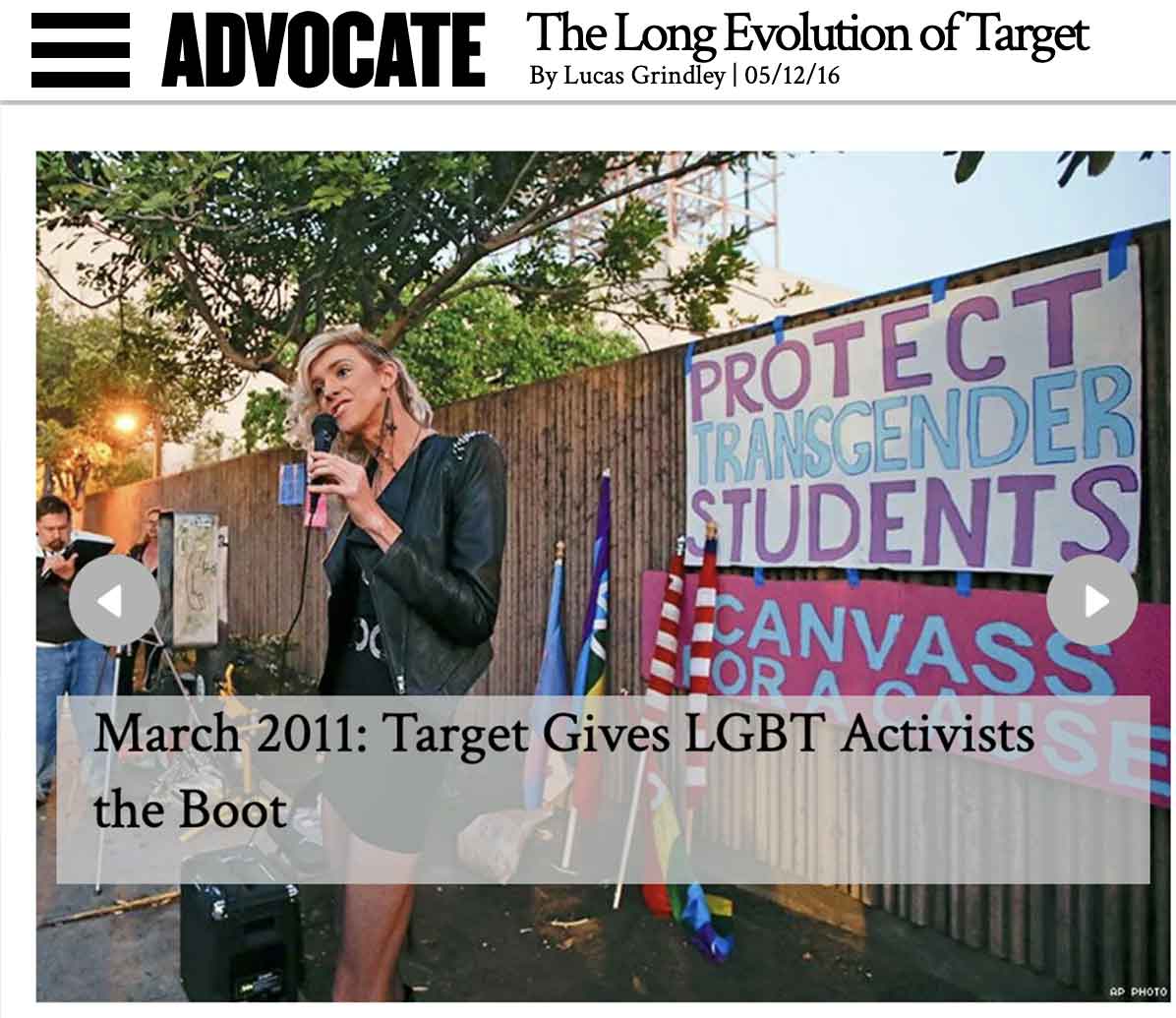
Target didn’t only release a Pride line. They have a long track record of contradicting their “inclusive” ad campaigns by financing “family values” politicians with platforms built on exclusion. For more on Target’s extensive history of rainbow washing, see this 2016 piece from The Advocate or my TikTok breakdown here.
So, if the question of today’s podcast is “Should brands be political?” I think we can agree that one answer is “Not like this!”
But there’s a third definition here that complicates our CoMuckraking. If we only define brands getting political as;
- Taking a public stand on social, cultural, or environmental issues;
- Funding and lobbying politicians to legislate in their best interest;
...we ignore the fact that corporate brands are political bodies in and of themselves. And here's what I mean by that...
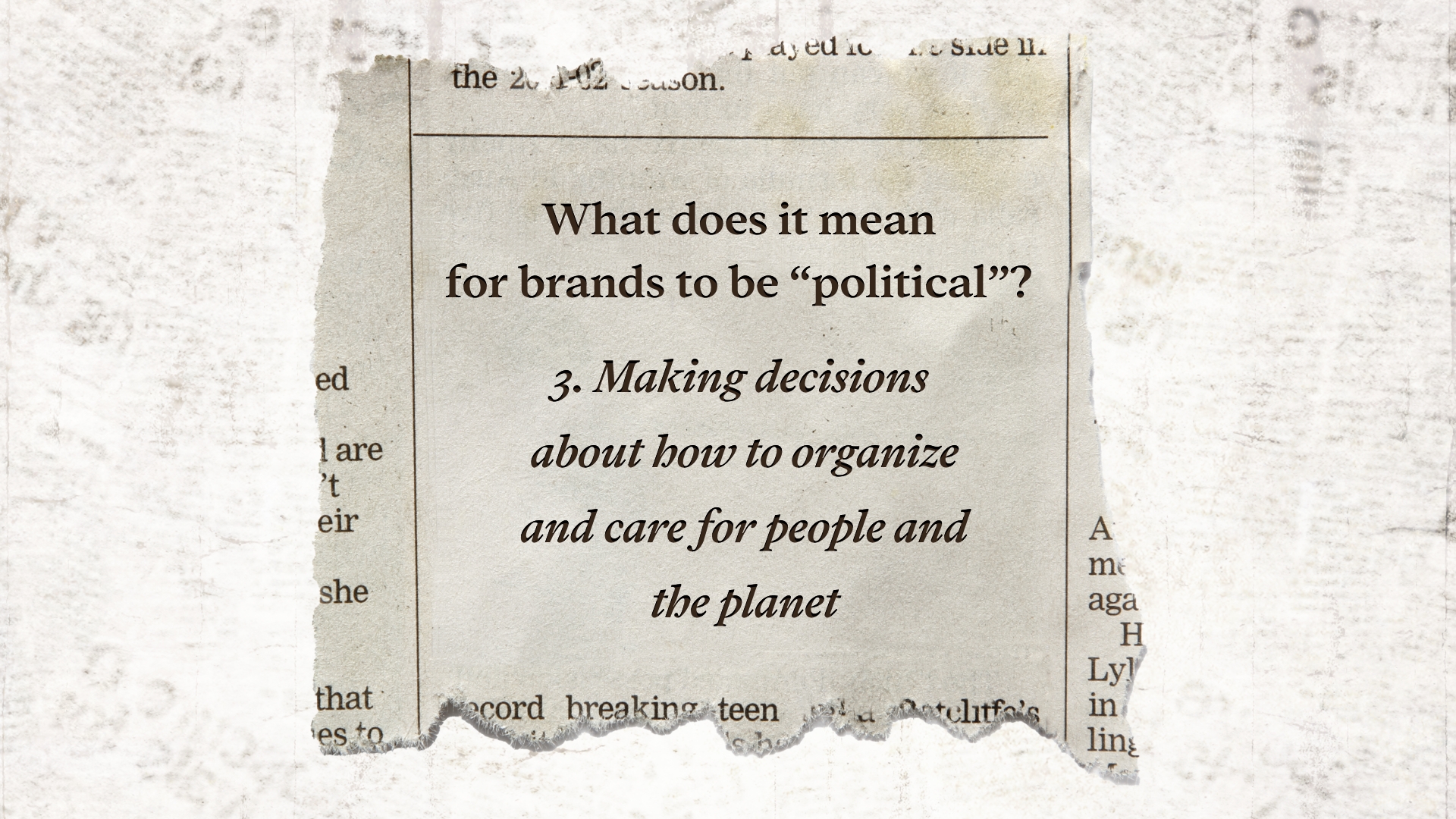
3. A brand gets "political" by making decisions about how to organize and care for people and the planet.
If we trace back the origin of the word politics, which comes from the Greek Πολιτικά, politiká, meaning “affairs of the cities” — Wikipedia defines politics as the “set of activities that are associated with making decisions in groups, or other forms of power relations among individuals, such as the distribution of resources or status.”
In other words, “politics” is a fancy word for how people collectively make decisions about how to live together on the planet.
In theory, we the people make decisions about how to live together, by voting for who will represent us in government. And then, it’s the job of the politicians we elect to make decisions on our behalf and in our best interest.
But, when corporations — whose leadership we didn’t vote on — fund and lobby those same politicians to legislate in their best interest, our votes immediately lose their value.
When it’s profits vs. people, profits always win.
You might be thinking, “Yeah, RKA! This is the case for keeping corporations out of politics!” But that’s easier said than done and let me tell you why:
Multinational corporations like Anheuser Busch and Target aren’t merely regulated by the United States government — because what one country forbids, another country welcomes, or more accurately, is forced to abide to survive economically. So if the USA enforces strict environmental or labor laws, multinational corporations simply build factories in countries with looser regulations. These corporate decisions directly and indirectly impact people here in the USA, in terms of jobs, pollution, tax dollars, and so much more, yet we — and the politicians we elect — have absolutely no say in the matter.
In a globalized economy, corporations are political bodies. They make decisions that directly affect how people across the world live and how resources are allocated; and they can skirt regulations in any given country, by taking their business operations elsewhere — or threatening to.
And when they do violate laws that we the people have elected officials to enact and enforce, corporations can and do simply buy their way out of the consequences. Like Anheuser Busch did in 2019, when it was found to be in violation of California’s air quality laws. Anheuser Busch knowingly broke the law and wagered it was cheaper to pay $500,000 in fines than to lower emissions.
In March 2023, the Changing Markets Foundation published a report on corporate greenwashing — companies marketing themselves as environmentally-friendly when their practices don’t match the label — and described how Anheuser Busch partnered with the non-profit Climate Neutral to certify its Bud Light NEXT beer as “carbon neutral.” According to this report:
“To achieve this, they measured emissions associated with the supply chain of Bud Light NEXT and bought $50,250 of carbon credits. Climate Neutral claims the companies it works with must also reduce their own emissions, but although Anheuser-Busch has plans to reduce its emissions, no absolute reductions have been reported to date.”
But a carbon offset is not the same as being carbon neutral. In an article from Greenpeace entitled, “The biggest problem with carbon offsetting is that it doesn’t really work,” the organization describes how, “a newly-planted tree can take as many as 20 years to capture the amount of CO2 that a carbon-offset scheme promises.” Yet, just as corporations like Anheuser Busch wager that it’s cheaper to pay fines than follow environmental protections laws, they also bet on the idea that “carbon neutral” press will overshadow their actual company practices.
And corporate profits depend on these types of wagers.
This is the story of capitalism — when you have enough money, you can pick and choose which laws to abide by, knowing your power, privilege, and profits will always afford you the ability to keep on keeping on.
To put this in perspective, as of July 2023, Apple is valued at $3 trillion, making it the world’s most valuable company by market cap, and if it were a country, it would be the world’s 5th wealthiest nation. Amazon would be 17. Anheuser Busch would be 68.
In this way, multinational corporations are not simply political bodies in and of themselves — they hold more power, wealth, and influence on world politics than our individual governments do.
It’s called “corporate rule” and if you want to learn more about this phenomenon, I highly recommend checking out NO LOGO by Naomi Klein. Sadly, despite sending shockwaves through the world for exposing how brands had taken over every aspect of public and private life, not much has changed since the book’s publication in 1999.
When multinationals have more say and sway in human rights and environmental practices than the nations they do business in, every choice they make — from how they source their products to who makes them and for how much to how they’re transported, packaged, and sold — is a political one.
Countries who try to regulate their harmful activities risk the economic damage of corporations pulling out and moving elsewhere. It’s the ultimate “Damned if you do, damned if you don’t” paradox: short term economic losses vs. long-term environmental damage and a deepening divide between the rich and the poor. For centuries, when faced with this dilemma, our politicians have ultimately sided with corporate interests while pushing off the long-term consequences onto future generations.
That future is now. We are living in it, breathing its toxic air, drinking its polluted water, and yet somehow many of us still believe that capitalism will regulate itself and that governments beholden to corporate interests can somehow save us in time. They haven’t yet. What makes us think they will anytime soon?
So, if we return to our question, “Should brands be political?” and we define what “political” means in three ways:
- Taking a public stand on social, cultural, or environmental issues;
- Funding and lobbying politicians to legislate in their best interest;
- Making decisions about how to organize and care for people and the planet;
Then, the answer is abundantly clear — no, brands / corporations should not be political (unless they align their practices with values that support people and the planet). And yet, the reality is that they are political, whether we like it or not.
Every major decision that a corporation makes is ultimately a political one.
And there isn’t a government in the world with the power to stop them.
When we see how, in a global capitalist economy, corporations are inherently political bodies…the question goes from, “Should brands be political?” to “Is it even possible for brands to not be political?”
Let’s imagine, for a moment, a world where brands DID just “shut up and sell.”
A world where corporations completely withdrew from any cultural, social, or environmental commentary and JUST focused on profits without any performances to distract from that solitary goal.
In this world, the government would regulate corporations and ensure they’re doing what’s right for people and paying their fair share of taxes without any fear that a brand would pull their donations or funding to political action committees.
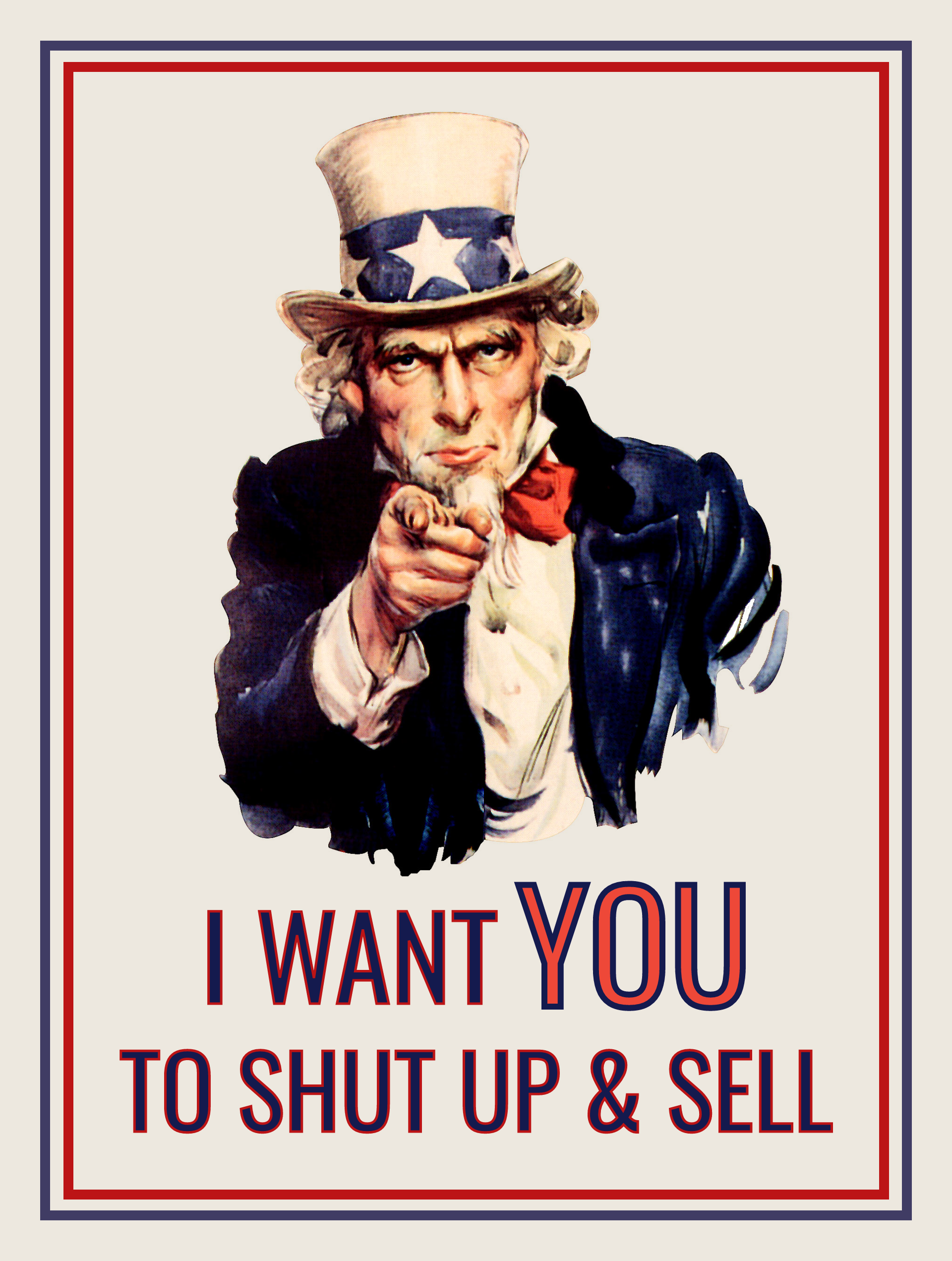
Because in this hypothetical, brands and corporations would be barred from donating to political candidates or lobbying in any way. And individuals receiving corporate benefits of any kind would also be unable to participate in government.
Let’s take this to its logical conclusion.
First, in this world, we are still living in a global capitalist economy. For a government to regulate corporate activity and ensure companies aren’t harming people in any way would impact profits. So the “damned if you, damned if you don’t” paradox still exists, forcing governments to choose between short-term economic losses vs. long-term environmental damage and a deepening divide between the rich and poor. Similarly, if corporations were paying their fair share of taxes in this situation, there is further disincentive to enforce regulations that reduce tax contributions, which keep the government running.
You following me here?
And in this globalized economy, if one government enforces harsher restrictions than another, a corporation can simply take its business elsewhere, making it a game of choosing which countries are more amenable to the corporation’s bottom line needs.
Take the government out of regulating business at all and “let the market regulate itself” as many small government proponents advocate and we already know that mega brands would choose the path that leads to short-term profits vs. long-term wins for humanity.
When left to their own devices, multinational corporations have never chosen people and the planet over profits.
It defies the nature of capitalism, which hinges on constant growth. When caring for the earth and its people gets in the way of profits, caring is the first to go.
So, in any version of this “shut up and sell” universe, corporations are still political bodies. Once we arrive here, we then realize that “Should brands be political?” Is the wrong question.
The better question this leads us to is: “Should corporate brands exist?”; “Is capitalism serving us? All of us?” Better yet, “Can capitalism ever realistically serve all of the world’s people and the planet?”
If you answered “yes,” to that last question, I encourage you to think about what circumstances would have to be in place for that to be the case. And then look around at the ticking time bomb that is climate change, pollution, social injustice, and the monumental chasm separating the rich from the poor, and ask yourself — at the rate we’re going, is there even time to make those circumstances come true?
If “more good people with money” haven’t solved our pressing global problems yet, when will they? How will they?
When I first made a TikTok about this topic, I led with the idea that “We NEED brands to be political because if not, we’re all doomed” and I had some interesting discussions in the DMs, many with people who disagreed with me. (You might remember me saying that the metrics I care about most are the discussions that happen offline after I share something.)
I appreciate these conversations for helping me to think about things in new ways and challenge the TikTok-ified way we over-simplify complex topics. These discussions are what pushed me to make this podcast episode and be willingly to publicly disagree with myself, which is a skill I’m practicing. (As I often tell my 5-year-old daughter, it’s good to do things we’re bad at.)
One of my favorite people to disagree with on the Internet is Leigh Stein, who always helps me find new answers in better questions.
“Why do you think brands should be MORE political? I wonder if we turn to brands because we lose faith in our government.”
She’s right. It is the government’s job to look out for people, not corporations.
I sat with this for several weeks as I prepared this podcast episode because I agreed with her disagreement. It isn’t the job of corporations to look out for human welfare, it’s the government’s.
No, I don’t want more corporations investing in marketing to masquerade as the change when they are anything but. And no, I don’t want corporations donating to political campaigns and lobbying the government to side with infinite scaling over sustainability.
But ultimately where I landed is that as long as we live in this economic system, neither the government nor corporations can both tend to the bottom line and what’s best for people and the planet.
As long as corporations have more power than the governments we elect…
As long as corporate bodies can pick and choose which regulations to abide by, which they can pay off, and which country helps them amass the most profits…
As long as corporations can leverage one nation’s economic fragility to reinforce another nation’s power and wealth…
Then, we live in an oligarchy, not a democracy.
And this crisis of faith isn’t about governments vs. corporations — it’s about all of us vs. an economic system that privileges profits above all else.
When we ask, “Should brands be political?” and dare to go down the rabbit holes that this question reveals, we are led to better questions and answers around why exactly this system doesn’t serve our collective best interests, no matter how we slice it.
And, yes, governments should protect us. But they can’t if capitalism is king. And there has never been a time in its 500 year evolution when it has. Why are we wasting our time apologizing for a system that only ever finds new and creative ways to hurt us?
And now the final question is, “What do we do next?”
Just as I am under no grand illusion that capitalism can be reformed or governments under capitalism can ever fully protect us from its harms, I am also under no illusion that there is an easy path to abolishing it.
There is no “get out of capitalism free card.” We can’t opt out, jump ship, and swim to safety.
The most horrifying design feature of this system is that it forces all of us to participate in it — we all benefit directly and indirectly from exploitation. We just don’t see it.
For those of us in the USA, the majority of us don’t see the global corporations polluting the oceans or our air in our day to day lives.
We don’t see how the energy that powers our homes, our factories, our infrastructure is generated.
We don’t see the people who make the clothes on store hangers or know how much they were paid or what their life looks like when they’re off the clock.
We don’t see where our trash ends up. We don’t watch it seep into our water supply, our soil, our air.
What we do see are ads telling us how much the mega brands responsible for all of this are doing to market themselves as part of the solution, when they created the problem to begin with.
What we do see are politicians blaming our modern problems on US not doing the right thing or voting for the right people.
We see a world shaped around consumption at all costs and we can’t see ourselves living any other way.
And because we don’t see an easy answer formed in the image of capitalism — an elixir, a 3-step plan, an obvious fix — we convince ourselves that another world is not even worth imagining. Because we can’t see how it would ever come true.
So, if we’re asking, “What do we do next?”
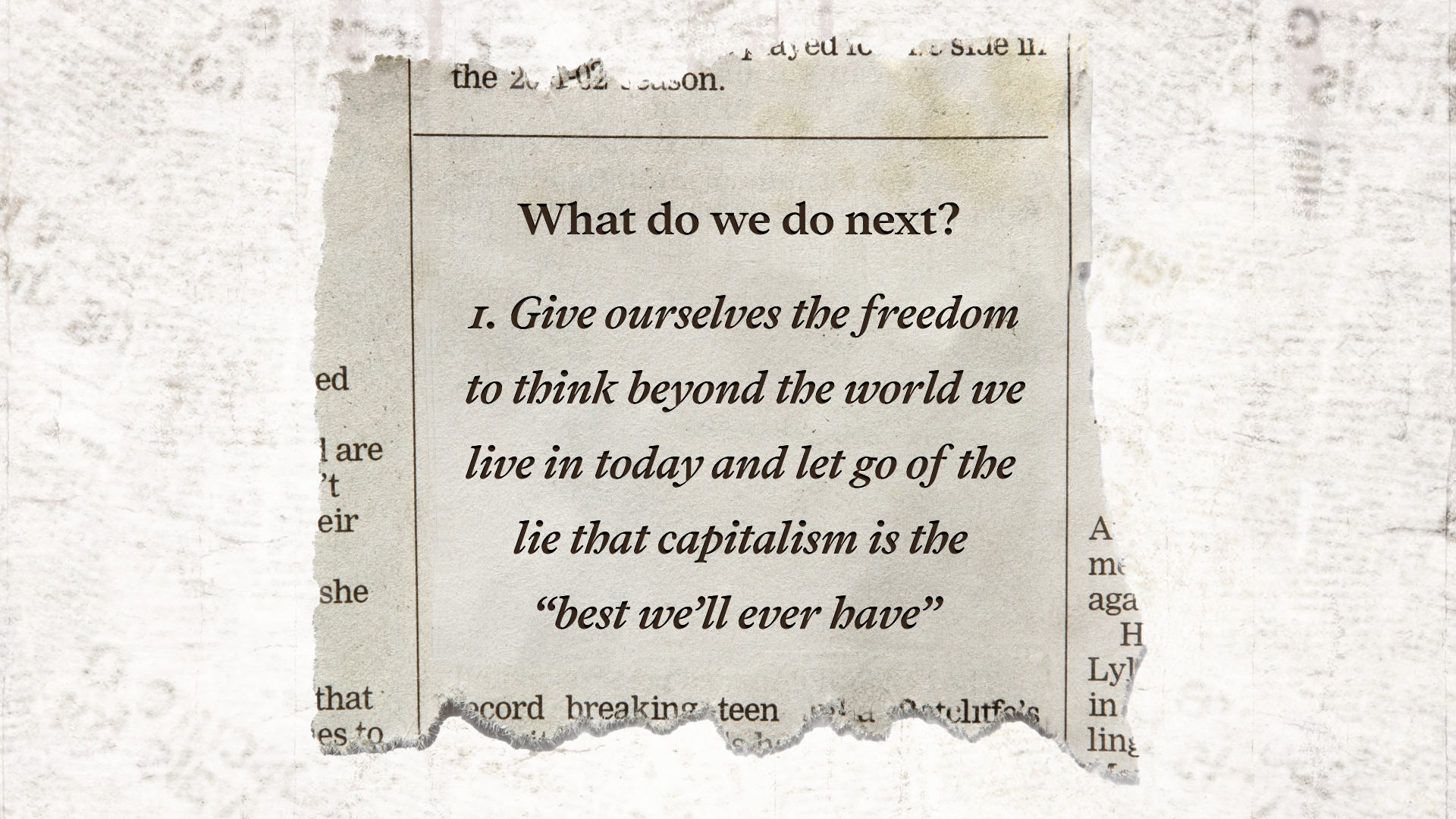
I think one step is to allow ourselves the freedom to think beyond the world we live in today. This is why I encourage us, especially those who are parents, educators, or mentors to young people, to give the next generations the gift of embracing how capitalism is not the best we can do and we must do better.
We don’t need our kids deconstructing what we were too scared to do for them.
I believe that the better world we seek will be built by a version of ourselves we haven't become yet.
And we won’t if we aren’t brave enough to let go knowing all the answers and start living into the questions.
I believe that to be an activist today means planting seeds in a garden we won’t see flourish to their full potential. This is contradictory to how capitalism has trained us to seek immediate and personal validation for our efforts.
Which leads me to a second step...
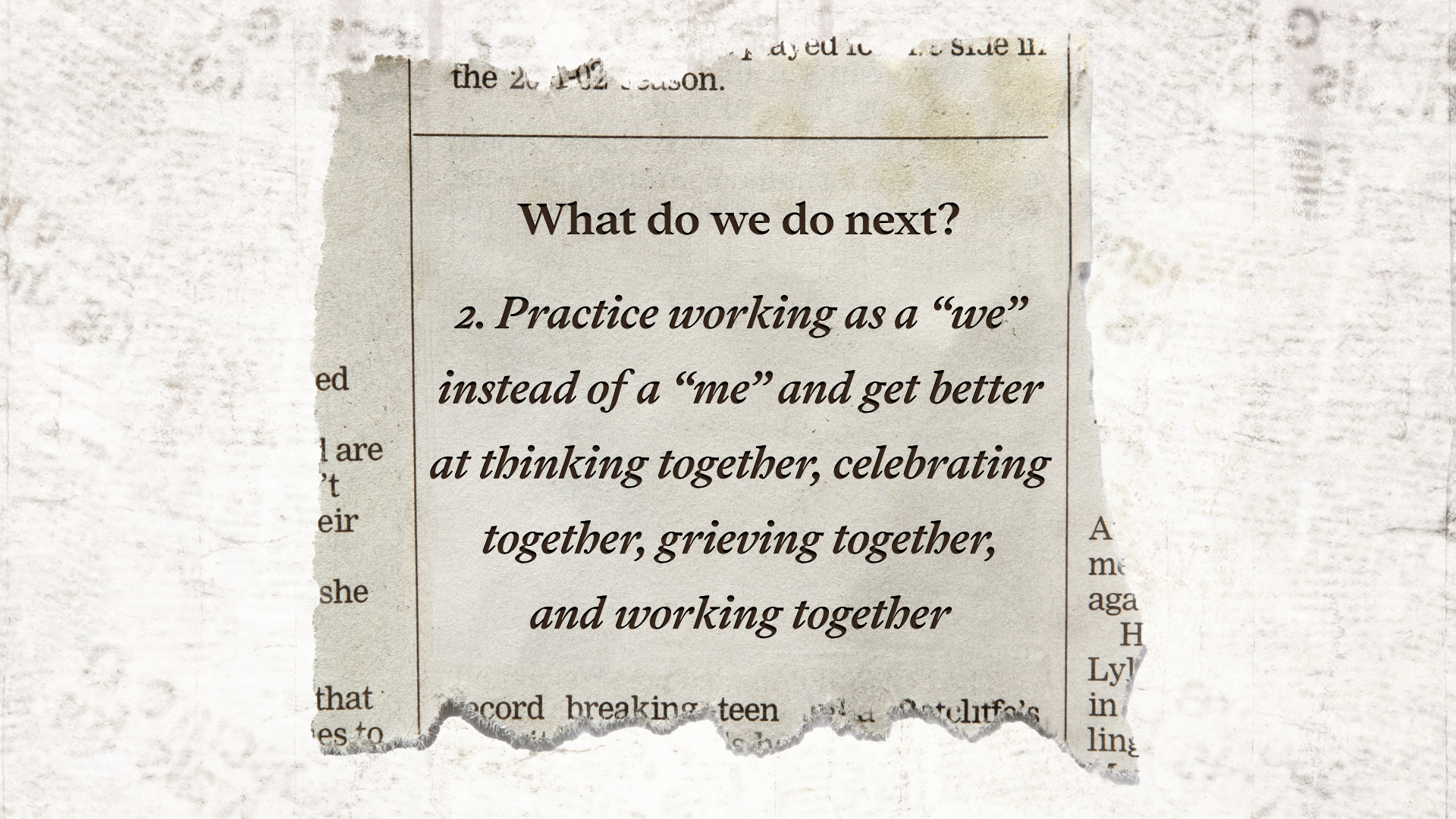
We need to practice working as a “we” instead of a “me.”
If none of us individually has the answer, but we do, then part of the work towards building a better world is in getting better at being together, thinking together, celebrating together, grieving together, working together.
Capitalism separates us because that’s how it thrives. When we see other human beings as competition and barriers to our own survival, we continue to play a game where nobody wins, but everyone thinks they’re about to.
We are a society more skilled at buying than being, consuming vs. collaborating, declaring vs. doing.
When I critique capitalism, people often come back with, “What will motivate us if not self-interest?”
But the other way to look at this is the fact that until all of us thrive collectively, none of us can reach our full potential individually.
A world that’s better for everyone — every one of us — is a world where, when we win, we all win. When we lose, we all lose. In this world, the greater human interest is inextricably tied to self-interest.
That’s a win/win that capitalism can never offer all of us, which is why it’s not good enough for me and isn’t good enough for you either.
In that spirit, a third step...
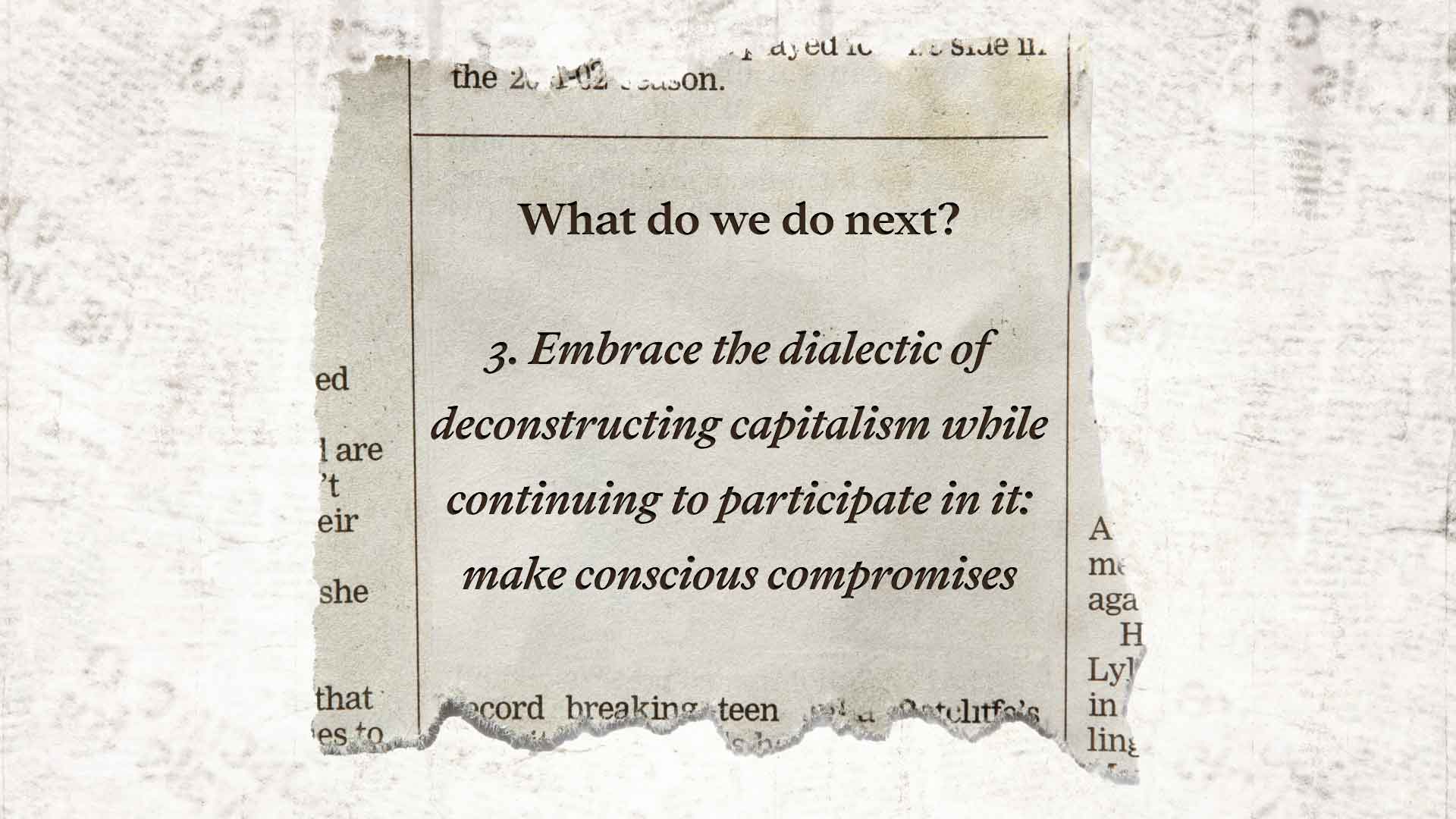
Embrace the dialectic of deconstructing capitalism while still participating in it, because there is no 100% “ethical” or harm-free way of existing in this current economic system.
We must still find, earn, make, and spend money and in between, we must care for and nourish ourselves, seek joy, feed our souls. Raging against the machine 24/7 is not sustainable.
Instead, we must carefully and consciously make compromises each day. Getting comfortable in the discomfort of knowing capitalism doesn’t ultimately serve us, but we must still operate within it, will help us to continue cultivating community and deconstructing, without being seduced back into the lie that this is the best we’ll ever get, so why bother building towards any better?
We have to feed our spirits to keep moving forward or we will fall back into old patterns.
And part of that is finding ways to make money that don’t destroy us.
So, if you’re reading this and you run a brand of your own, swap the shame or guilt you might feel for being forced to participate in capitalism with the call to carefully choose your compromises.
And when you feel exhausted, as we all do and will, let that be your signal to rest and reflect, not give up or give in.
And finally, a fourth step...
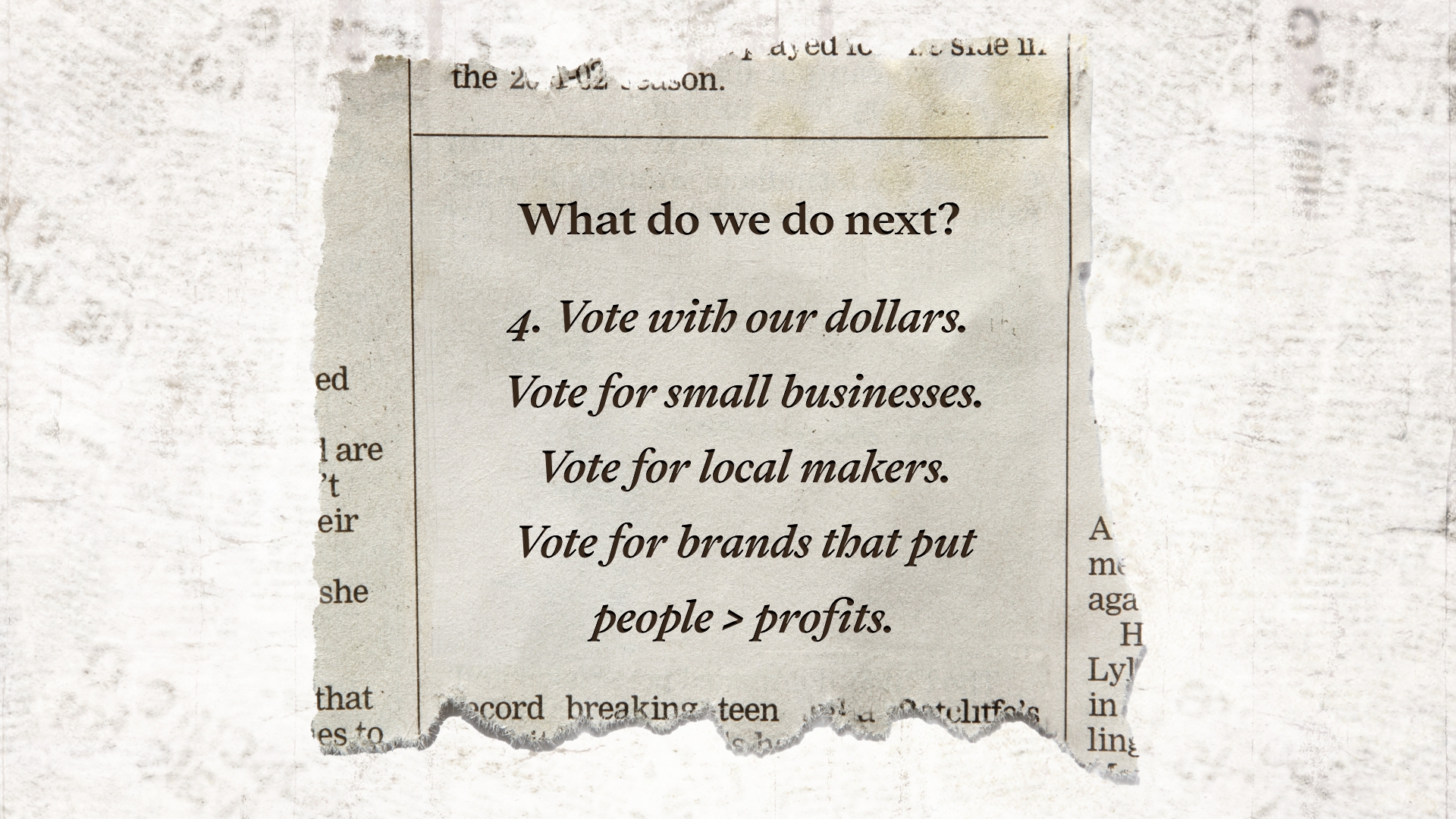
Notice how I don’t label these as the steps, but a step, which reminds us that there is no order we must follow, just as there is no clear beginning or end to this work:
Yes, I believe we can and must “vote with our dollars” while embracing the dialectic of both deconstructing capitalism and continuing to participate in it.
But multinational corporations are not counting our votes. Corporate brands are oligarchies not democracies.
If you want to make the most of the money you must spend to live and thrive, whenever you can, vote for a small business. Vote for a local maker. Vote for the brands that put serving over scaling, transparency over trip wires, and people over profits.
This, like all the steps I suggest here, is an interim step, not the end goal. This is the discomfort of the dialectic. We can and must vote with our dollars today, while organizing for a world independent of dollars in a future tomorrow. It’s both/and, not either/or. It’s the rainbow, not black and white.
And I invite you to live into this rainbow of questions with me, as we become the people who will find better answers together.
“Should brands be political?”
You tell we.
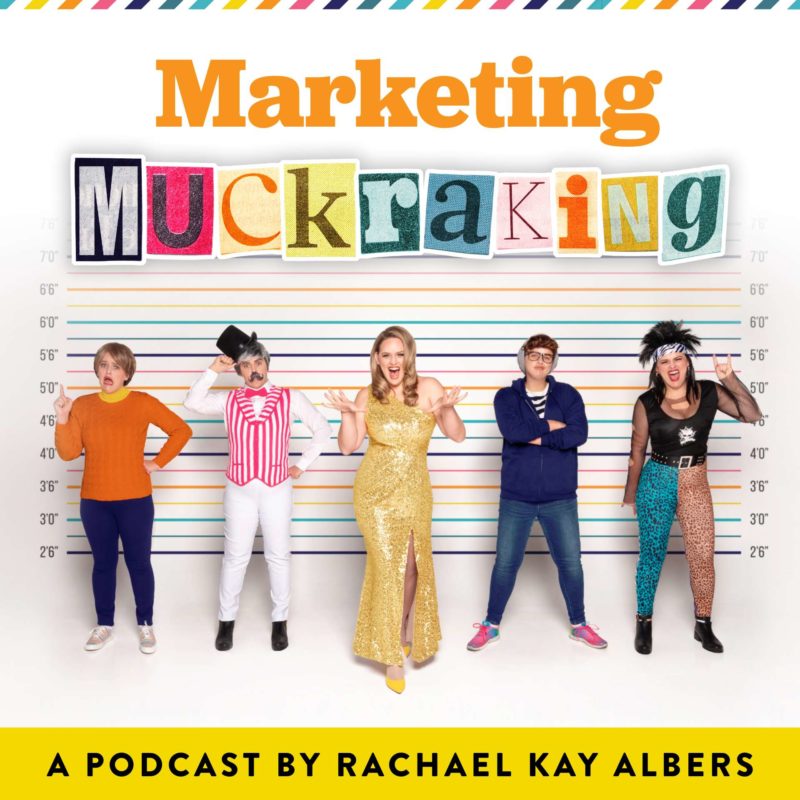
About the Marketing Muckraking podcast
Welcome to Marketing Muckraking, the show that asks not simply what brand culture can do for us, but what it’s doing to us — with your host, creative director, brand strategist gone wild, and the court jester of online business, Rachael Kay Albers — making fun of business and making business fun.
This is the show for rebels, revolutionaries, and renegades who run businesses that burn the rulebook. If you’re sick of business podcasts with all the answers — I’ve got nothing but questions.
Where we swap B School for FREE SCHOOL, easy for honest, and goal digging for marketing in pursuit of meaning.
If you love the show and want to support more marketing muckraking, please subscribe, review, share with your enemies, and if you really want to make my day, you can go to BuyMeARobe.com and leave a little something on the nightstand.

I have no freebie to tempt you with.
No automated email sequence to whisper sweet nothings into your inbox late at night.
Here’s what I do have: a hilarious show on how to market with integrity, sell your services & products successfully, and still not take yourself too seriously. Join me here:
